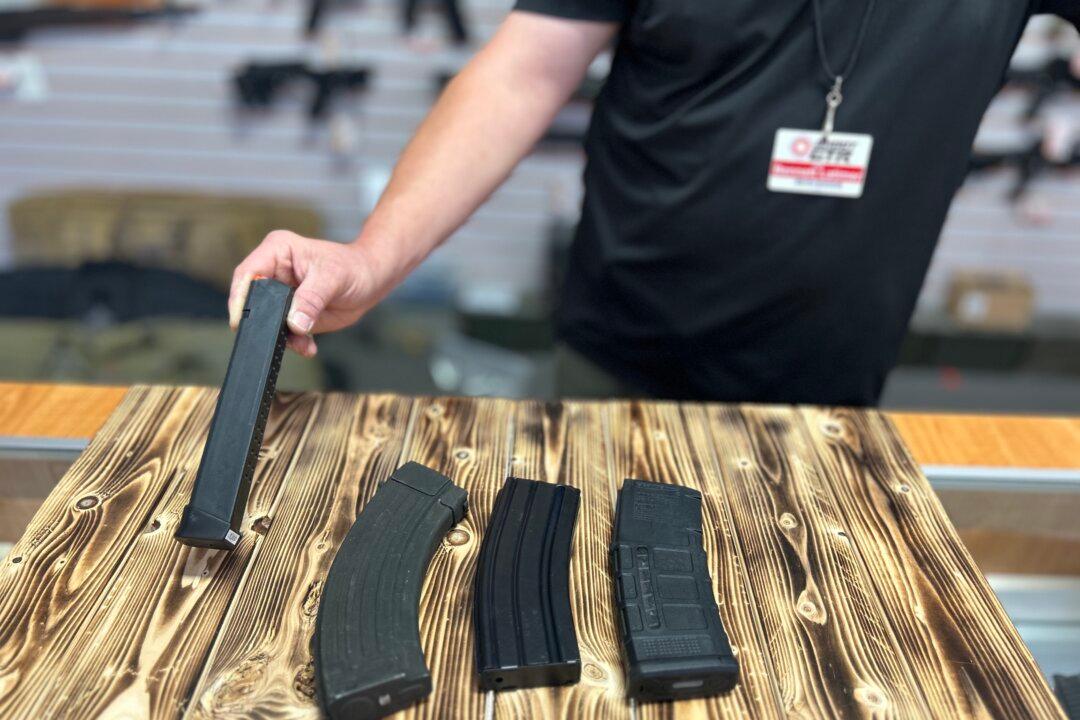A federal judge from California determined on Sept. 22 that the state’s ban on gun magazines that can hold more than 10 rounds is unconstitutional.
U.S. District Judge Roger Benitez in San Diego said the state’s “sweeping ban” of the detachable magazines—sometimes referred to as high-capacity magazines—violates the Second Amendment rights of firearms owners because it bars people from using such magazines for lawful reasons, including self-defense.




